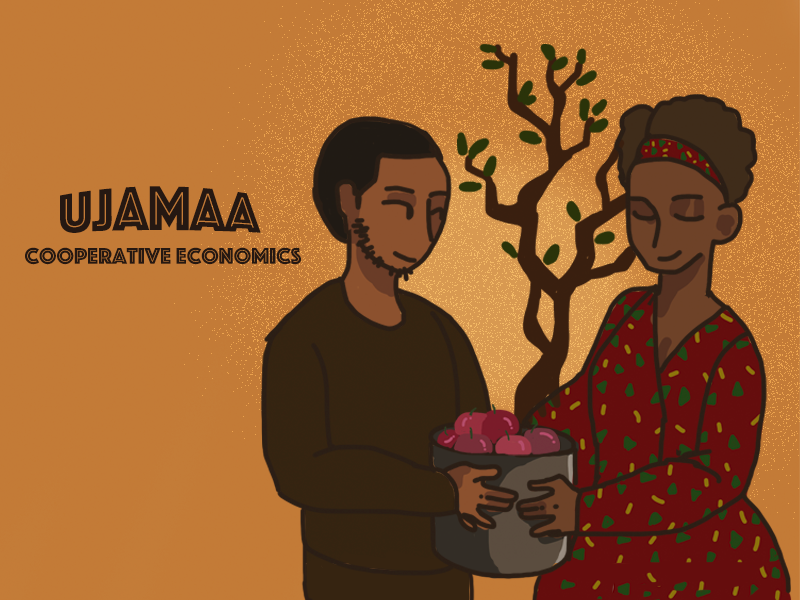The fourth principle of Kwanzaa, Ujamaa, means cooperative economics. It’s the foundation of what we’ve seen brought to life on social media with the popularity of the #BankBlack, #BuyBlack and #ShopBlack Movement.
Light the Fourth Candle
Ujama (oo-JAH-mah) teaches us to support one another and to build businesses that benefit the whole community and helps it thrive. Opportunities include WeBuyBlack and the BlackWallStreet app, which identifies Black owned businesses nationwide.
The idea behind the #BuyBlack and #BankBlack movements is exchanging the money within the community first, providing jobs to in our community, increasing the average income, bringing more opportunity for more business endeavors and expansion and then spending that increased purchasing power in our community.
If you try lifting something heavy on your own, it’s so much harder than if you have other people helping you. The more we work together to lift up our community, the stronger we will be.
The “Domino Effect” of Cooperative Economics
What’s in it for those of us who don’t own businesses? When businesses in our community are doing well, our economy thrives. The longer our dollars circulate in our community, the more families we help. Businesses that are prospering can offer more products and services, expand their hours and offer higher quality goods. Business owners can hire more people and pay their employees more – so their families can grow and prosper – spreading the opportunity to build wealth to more people.
Helping Our Community Grow
Here’s how you’re making a difference when you #BankBlack.
“People place deposits into the bank and the bank lends those funds for borrowers to buy homes, grow businesses and build wealth in the community,” says Teri Williams, our President and Chief Operating Officer. “That, in turn, results in additional deposits that go into the bank, and the recycling goes on.”
Little to Show for All Our Buying Power
Today, the Black community collectively has $1.2 trillion in annual spending power. That number is projected to grow to $1.4 trillion by 2020, according to a report from the University of Georgia. That’s 275 percent growth since 1990. Wow!
When we keep our money within the community, that money can be very powerful. Maggie Anderson, author of “Our Black Year: One Family’s Quest to Buy Black in America’s Racially Divided Economy” said in a TED Talk, “In the African-American community, our dollars leave the community in six hours. If Black people were to increase spending within our own community from 2 percent to 10 percent, we would create 1 million new jobs.”
1 million new jobs. Can you imagine?
We must support each other to uplift each other. Practicing Ujamaa beyond the holiday season is the first step. No one will do it for us. We are the ones we’re waiting for.


















